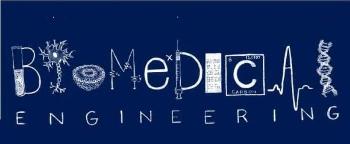What Does a Strong Faculty Job Description Look Like?
The beginning of the process to recruit the ideal faculty member is a strong faculty job description. Schools from all over the nation are constantly on the lookout for qualified educators. Since top applicants have lots of possibilities, businesses are required to craft concise and specific job descriptions.
Institutions struggle to come up with job descriptions that attract quality candidates. There are numerous good reasons why there should be a clear job description for faculty. It ensures only qualified people can apply and all the applicants know what to anticipate. It also helps the company eliminate unqualified applicants from the start.

How Do Faculty Responsibilities Define Academic Excellence?
Faculty members don multiple hats in their roles at institutions of higher education. Most faculty job descriptions begin with teaching. Professors create course materials that satisfy education requirements and the needs of students. They prepare lessons, conduct discussions, and organize learning activities.
- Research is another essential part of faculty work. Active participation in research is often a requirement for hiring faculty Job Vacancies. Faculty engage in studies, publish scholarly papers, and present research at conferences. Such research frequently contributes to their teaching directly.
- Service to the institution is an additional aspect of faculty duties. Committee work, program development, and community outreach are typical expectations. Such activities complement the overall mission of educational institutions.
- Student mentoring is more than a classroom experience. Professors mentor students through academic and career choices. They provide recommendation letters and oversee independent study projects. This mentoring relationship has a long-term duration beyond graduation.
- Administrative duties can be mandated of some faculty members. In addition to teaching, department chairmen, program directors and chairmen of committees have additional management roles. You would need excellent organizational and leadership skills to excel.

What Qualifications Are Institutions Seeking in Faculty Candidates?
For the majority of faculty positions, colleges will demand at least a specific educational qualification. A doctoral degree in the same field is usually demanded. Master's degrees with large professional experience are sometimes acceptable. The requirement of a specific degree differs by discipline and institution type.
- Teaching experience is very important in the process of faculty hiring. Successful applicants frequently cite classroom effectiveness based on student surveys. Past teaching awards or honors make applications much stronger. New graduates can replace teaching assistantships with full-time experience.
- Research achievements set apart applicants in tight job markets. Peer-reviewed publications indicate scholarly productivity. Grant funding indicates an ability to attract research dollars. Conference presentations suggest active membership in professional societies.
- Professional work outside the academy enhances many applications. Industry relationships prepare students for career achievement through faculty. Practical experience provides relevance and interest to classroom discourse.
- Communication skills are necessary for the success of faculty. Good teachers need to describe difficult ideas in simple terms. They must write grants, papers, and reports on a frequent basis. Public speaking skills assist in conference delivery and community relations.
- Technology literacy is more critical for today's faculty. Digital literacy is needed for online learning platforms. Research may include specialized software and data analysis packages. Social media and online communication are increasingly important in academic pursuits.
Which Faculty Skills Are Most Effective?
Flexibility assists faculty in coping with changing landscapes of education. Changing curricula, emerging technologies, and changing student needs demand flexibility. Effective faculty members accept change while preserving educational quality.
- Collaboration skills underpin teaching and research endeavors. Colleagues collaborate with faculty on research initiatives on a regular basis. Interdisciplinary programs and team teaching necessitate collaborative strategies. Staff and administrator relationship building is similarly valuable.
- Time management becomes essential with a variety of faculty tasks. Teaching, research, and service necessity balance necessitates planning. Managing deadlines for grants, publications, and grading necessitates strong organizational abilities.
- Critical thinking abilities benefit both research and teaching functions. Faculty must evaluate information sources and research methodologies. They guide students in developing analytical skills. Problem-solving skills help address various academic challenges.
- Cultural competency grows more important as student populations diversify. Faculty must understand different learning styles and backgrounds. Creating inclusive classroom environments requires awareness and sensitivity.
How Do Different Institution Types Affect Faculty Job Descriptions?
Research universities generally prioritize scholarly work in their faculty job postings. These roles usually demand prolific publication history. Expectations of grant funding could be greater than at other schools. Teaching loads could be less demanding to accommodate research time.
- Liberal arts colleges sometimes place teaching excellence over research productivity. These faculty job postings can be more focused on student mentoring and contact. Class sizes are usually smaller, with more individual attention required. Faculty are often teaching across a variety of areas within their department.
- Community colleges focus heavily on teaching and student support services. Faculty job descriptions at these institutions emphasize practical skills. Industry experience often weighs more heavily than research credentials. Student success metrics play important roles in evaluation.
- Online institutions require specific technological skills in their faculty. Distance learning experience becomes essential for these positions. Faculty must adapt traditional teaching methods for digital environments. Student engagement strategies differ significantly from in-person instruction.
What Benefits and Compensation Draw Top Faculty?
Competitiveness of salaries differs extensively across institutions and geographies. Private universities tend to pay a higher base salary than public ones. Location and living costs affect compensation packages. Salary ranges depend on market demand for particular disciplines.
- Having good benefits makes a job more appealing to those looking for work. Being offered health insurance, making retirement contributions and enabling sabbatical leave all add value to a job. Professional development is possible only when proper funding is available. A lot of faculty are attracted to flexible scheduling.
- The resources and infrastructure for research depend on what type of institution it is. Before you commit, check what facilities are provided and see if they have the equipment you’ll need. Conference budgets help faculty keep current with the newest developments in their field. Access to libraries and databases contributes to the work performed by scholars.
- Housing programs assist in recruiting faculty at high-cost markets. Institutions provide subsidized housing or down payment help. Out-of-state applicants may have relocation costs covered. Employment assistance for spouses is offered to meet the needs of dual-career couples.
Explore How to Write a Job Description by Title
How Should Institutions Write Effective Faculty Job Descriptions?
Clear job title wording lets applicants know expectations immediately. Specific departmental names and rank designations are crucial. Tenure-track vs. adjunct must be explicitly declared. Full-time vs. part-time designation makes a large difference in applicant interest.
- Detailed descriptions of duties avoid ambiguity regarding expectations. Percentage allocations to teaching, research, and service allow applicants to assess fit. Specific courses taught and student populations are a handy context. Descriptions of research facilities appeal to candidates in fields requiring extensive equipment.
- Required qualifications must be separated from desired qualifications clearly. Minimum requirements stop unqualified applications from drowning search committees. Desired qualifications identify top candidates without disqualifying anyone. Requirements flexibility can broaden candidate pools.
- Application deadlines and step-by-step processes must be made clear. Lists of required documents must be given specifically and entirely. Review timelines by the committee assist candidates in arranging their search plan. Contact information for inquiry avoids confusion and delays.
What Common Missteps Should Colleges and Universities Steer Clear Of?
Too general job postings fail to draw targeted applicants. Vague postings get loads of unqualified resumes. Descriptive specifications screen more efficiently. Specific expectations decrease turnover once hired.
- Unrealistic lists of qualifications deter decent candidates from applying. Ideal candidates are seldom found in tight academic markets. Prioritizing necessary versus desirable qualifications enhances outcomes. Flexibility draws diverse candidate pools.
- Inadequate communication throughout search procedures irritates candidates. Frequent reporting regarding changes in the schedule preserves goodwill. Quick response to inquiries shows professional courtesy. Clear follow-up keeps candidates invested in the process.








ADD COMMENT